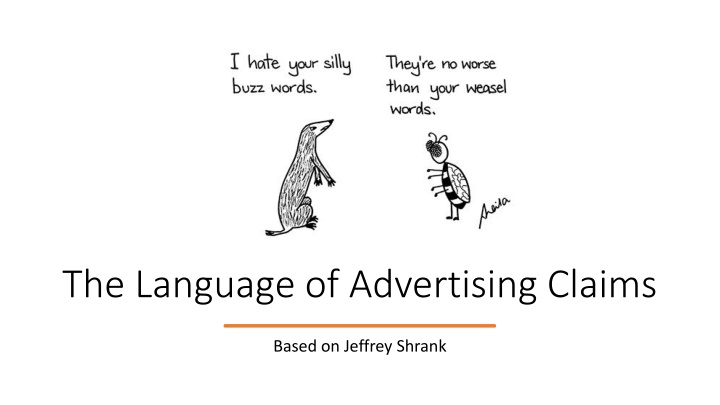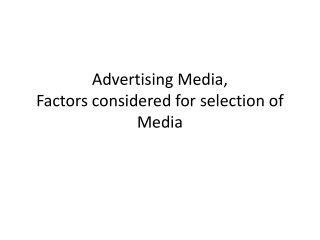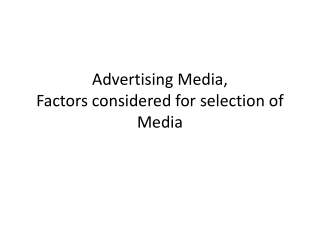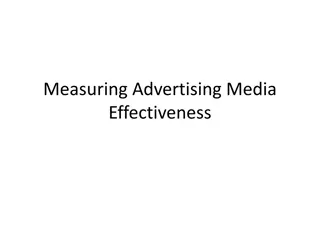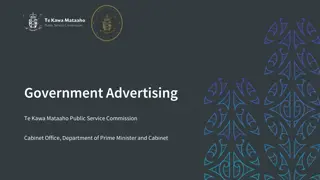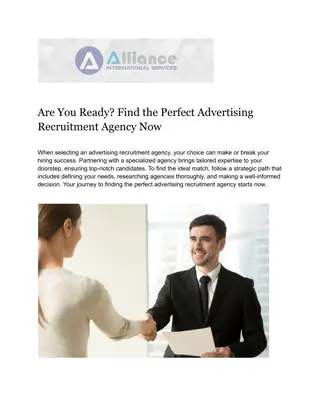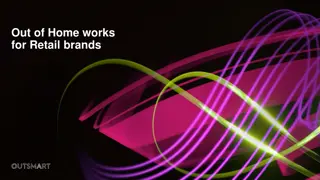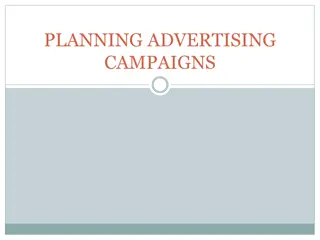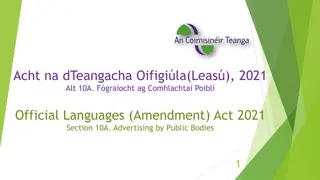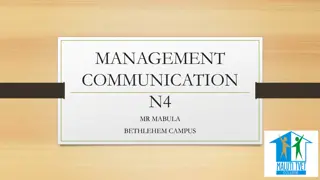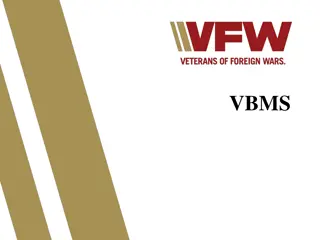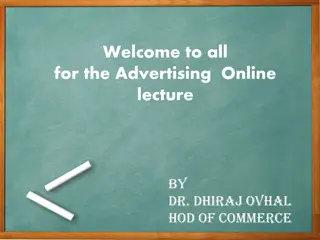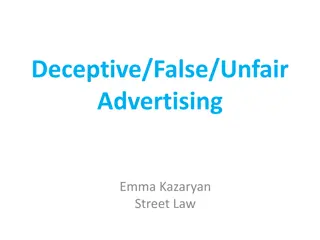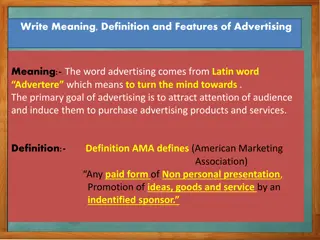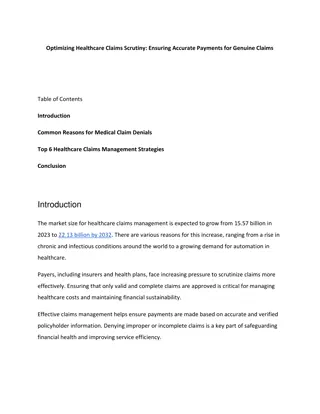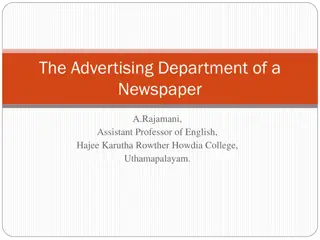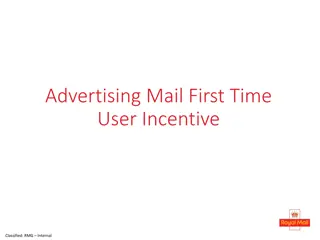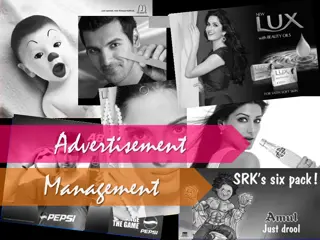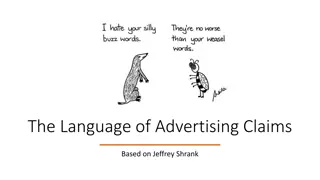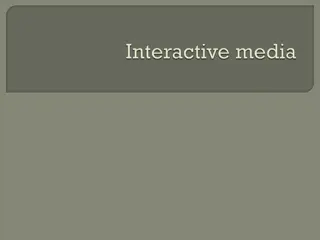The Language of Advertising Claims Based on Jeffrey Schrank
Understanding the various types of advertising claims is crucial in discerning between misleading information and genuine product superiority. Claims can range from blatant lies to subtle manipulations using careful wording to walk the fine line between truth and falsehood. The Weasel Claim, Water is Wet Claim, Unfinished Claim, and Unique Claim are examples discussed in this informative content sourced from Jeffrey Schrank.
Download Presentation

Please find below an Image/Link to download the presentation.
The content on the website is provided AS IS for your information and personal use only. It may not be sold, licensed, or shared on other websites without obtaining consent from the author.If you encounter any issues during the download, it is possible that the publisher has removed the file from their server.
You are allowed to download the files provided on this website for personal or commercial use, subject to the condition that they are used lawfully. All files are the property of their respective owners.
The content on the website is provided AS IS for your information and personal use only. It may not be sold, licensed, or shared on other websites without obtaining consent from the author.
E N D
Presentation Transcript
The Language of Advertising Claims Based on Jeffrey Shrank
The "claim" is the verbal or print part of an ad that makes Claims some claim of superiority for the product being advertised. After studying claims, students should be able to recognize those that are misleading and accept as useful information those that are true. A few of these claims are downright lies, some are honest statements about a truly superior product, but most fit into the category of neither bold lies nor helpful consumer information. They balance on the narrow line between truth and falsehood by a careful choice of words.
The reason so many ad claims fall into this Parity category of pseudo-information is that they are applied to parity products , products in which all or most of the brands available are nearly identical. Since no one superior product exists, advertising is used to create the illusion of superiority.
The Weasel Claim The expression "weasel word" is aptly named after the egg-eating habits of weasels. A weasel will suck out the inside of an egg, leaving it appear intact to the casual observer. Upon examination, the egg is discovered to be hollow. Words or claims that appear substantial upon first look but disintegrate into hollow meaninglessness on analysis are weasels. Commonly used weasel words include: "helps" (the champion weasel); "like" (used in a comparative sense); "virtual" or "virtually"; "acts" or "works"; "can be"; "up to"; "as much as"; "refreshes"; "comforts"; "tackles"; "fights"; "the feel of"; "the look of"; "looks like"; "fortified"; "enriched"; and "strengthened."
The Water is Wet Claim "Water is wet" claims say something about the product that is true for any brand in that product category, (for example, "Schrank's water is really wet.") The claim is usually a statement of fact, but not a real advantage over the competition.
The Unfinished Claim The unfinished claim is one in which the ad claims the product is better, or has more of something, but does not finish the comparison.
The Unique Claim This kind of claim states that there is nothing else quite like the product being advertised. For example, if Schlitz would add pink food colouring to its beer they could say, "There's nothing like new pink Schlitz." The uniqueness claim is supposed to be interpreted by readers as a claim to superiority.
The So What? Claim This is the kind of claim to which the careful reader will react by saying "So What?" A claim is made which is true but which gives no real advantage to the product. This is similar to the "water is wet" claim except that it claims an advantage which is not shared by most of the other brands in the product category.
The Vague Claim The vague claim is simply not clear. This category often overlaps with others. The key to the vague claim is the use of words that are colourful but meaningless, as well as the use of subjective and emotional opinions that defy verification. Most contain weasels.
The Celebrity Endorsement or Testimonial A celebrity or authority-figure appears in an ad to lend his or her stellar qualities to the product. Sometimes the people will actually claim to use the product, but very often they don't. There are agencies surviving on providing products with testimonials. A variation on the celebrity endorsement is testimonial from groups of people who are assumed to be like-minded with the reader (e.g. People who are serious about sports hydration drink Pocari Sweat before, during and after exercise ).
The Scientific (or statistical) Claim This kind of ad uses some sort of scientific proof or experiment, very specific numbers, or an impressive sounding mystery ingredient.
The Compliment the Consumer Claim This kind of claim butters up the consumer by some form of flattery.
The Rhetorical Question This technique demands a response from the audience. A question is asked and the viewer or listener is supposed to answer in such a way as to affirm the product's goodness.
